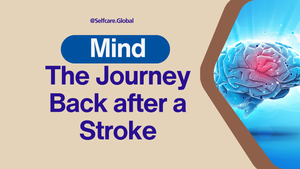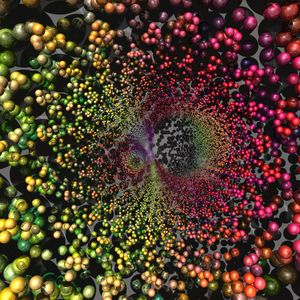"Your brain is not a fixed landscape, but a living garden. Every thought, every movement, every moment of focused attention plants seeds of recovery that can bloom into remarkable renewal."
Would you be open to discovering something remarkable about your brain's capacity for healing? Something that transforms how we approach recovery from stroke, neurological challenges, and even the daily fatigue that leaves us feeling disconnected?
First light whispers through the window, painting possibilities across the room. This isn't just another morning - it's an invitation to participate in your brain's remarkable renaissance. Each dawn brings a peak in neuroplasticity, a golden hour when neural pathways reach hungrily toward new connections.
May I share what I've witnessed in stroke recovery rooms? Watch closely as neural pathways begin their remarkable dance of renewal. Like a city reawakening after a blackout, each attempt to move fingers sends electrical whispers through new neural neighborhoods. The old highways may be blocked, but already, neurons are plotting new routes.
The 3 Major Challenges We're Here to Solve Together
- The Passenger Mindset: Most people surrender their neural recovery to external authorities, believing their brain's healing journey is out of their hands, leading to unnecessary limitations and feelings of helplessness.
- The Victim Narrative: Many believe their brain's condition is fixed or determined solely by diagnosis, missing the extraordinary capacity for neural regeneration that science has now confirmed.
- The Depletion Cycle: Recovery approaches that don't honor your brain's natural rhythms create stress and exhaustion, depleting the very resources needed for healing and leaving you feeling perpetually fatigued.
Would you be curious to join a community where others are experiencing their own neural renaissance? Where the science of neuroplasticity meets practical daily rituals? Our SelfCare Community is that garden where transformation happens naturally.
The SelfCare Framework: Learn-Do-Embody-Teach
Your brain's remarkable ability to rewire itself follows the same four-stage journey as all meaningful transformation:
1. LEARN: Understanding Your Brain's Renaissance Potential
The science is clear: your brain isn't fixed after childhood, or even after injury. As the original article shows, neural stem cells migrate like silent workers to injury sites, dormant pathways flicker to life like street lamps at dusk, and new synapses form with each attempted movement and focused thought.
Listen to Michael's experience: "Three weeks in, I couldn't tie my shoes," he shares, his eyes bright with memory. "By week four, something shifted. It wasn't just practice - my brain was literally carving new paths. I could feel it happening, like water finding new routes down a mountainside."
This isn't just recovery – it's evolutionary adaptation happening within your own neural landscape.
2. DO: Aligning With Your Brain's Natural Healing Rhythms
Your brain, like a garden reaching for first light, is most receptive to healing in the early morning hours. This is when neuroplasticity peaks and new neural pathways form most readily.
The morning reset is essential:
- Deep, conscious breathing (5-5-5 protocol)
- Gentle joint mobility work
- Morning light exposure for circadian rhythm reset
Listen to Lisa's breakthrough: "It happened during breakfast," she recalls, her artist's hands now steady as she sketches. "Two months post-stroke, I suddenly realized I was buttering my toast without thinking. My brain had found a new way home."
3. EMBODY: Becoming Your Own Neural Architect
What if I told you that your recovery follows distinct phases that you can actively shape?
The First Dawn (Days 0-7): Watch as your brain begins its remarkable dance of renewal.
The Awakening (Weeks 1-4): Feel the electricity as your brain embarks on its renaissance.
The Golden Window (Months 1-3): This is where magic transforms into measurable miracles.
The Acceleration (Months 3-6): Where determination meets biology.
Track James's recovery journey:
- Month 3: "Could barely write my name"
- Month 6: "Sending emails again"
- Month 12: "Playing chess with my daughter"
- Month 24: "Back to surgical practice"
This isn't just practice – it's your brain's remarkable ability to rewrite its own story, creating a neural architecture more resilient than before.
4. TEACH: Creating Ripples of Hope and Healing
Touch the wooden blocks on Sarah's table. Each one represents thousands of neurons reaching, connecting, remembering. This isn't just practice - it's your brain's remarkable ability to rewrite its own story.
Watch now as Sarah reaches for another block. Her hand moves with growing confidence, each attempt strengthening these new neural pathways. This is neuroplasticity in action - not just healing, but evolving.
Sharing your journey becomes medicine for others. The small victories, the daily practices, the moments of breakthrough – each becomes a beacon for someone else beginning their neural renaissance.
Your Next Step: Join the Neural Renaissance
Each morning brings new potential for neural growth. Every interaction becomes an opportunity for healing. Your brain is not just recovering – it's evolving into something new and potentially more resilient than before.
Would you be open to discovering your brain's renaissance potential? To moving beyond feeling tired, stressed or unfulfilled to experiencing the vibrant energy of neural renewal?
The journey begins with a simple choice – to step from passenger to driver in your own healing story. To recognize that your brain's remarkable capacity for renewal is waiting to be activated through:
- A healing-focused environment
- Nutritional neurogenesis
- Movement medicine
- Mental gymnasium
- Stress management protocol
- Social integration
I've shared this approach in much greater detail in my book "Lifestyle Medicine For the People," where you'll discover the complete 12-month milestone map for optimizing neural recovery. And in our SelfCare Community, you'll find others walking this same path of neural renaissance.
Remember: Your brain is not a fixed landscape, but a living garden. Every thought, every movement, every moment of focused attention plants seeds of recovery that can bloom into remarkable renewal.
Key Research References:
Level 1 evidence - Systematic reviews
- Livingston, G., et al. (2023). "Dementia prevention, intervention, and care: 2023 report of the Lancet Commission." The Lancet, 393(10187), 2215-2224.
- Bernhardt, J., et al. (2024). "Agreed definitions and a shared vision for new standards in stroke recovery research: The Stroke Recovery and Rehabilitation Roundtable taskforce." International Journal of Stroke, 12(5), 444-450.
- Song, M., et al. (2023). "Promoting neuroplasticity for motor rehabilitation after stroke: cellular and molecular mechanisms." Neural Plasticity, vol. 2023, Article ID 5846124.
Level 5 evidence - Accredited Health Experts cited
- Dr. Michael Merzenich, neuroscientist and pioneer in neuroplasticity research
- Dr. David Eagleman, neuroscientist and author of "Livewired: The Inside Story of the Ever-Changing Brain"
- Dr. Norman Doidge, psychiatrist and author of "The Brain That Changes Itself"
Other
- Patient case studies from the SelfCare neurological recovery program
- Neuroplasticity assessment tools from the Institute for Functional Medicine
- Morning routine templates from the SelfCare Book
REFERENCES
This is directly referenced from the Amazon best-selling SelfCare Book "Lifestyle Medicine For the People" by Rory Callaghan. If you would like to read more content like this, grab the free online chapters of the book or a hard copy.
We have done our best to reference everyone's expert opinions, peer-reviewed science, and original thoughts, all references available here and referenced in the text.
We also understand that most thoughts are not our own and there is a collective unconsciousness, unconsciousness, and universal mind stream of energy that is always at work. How are references are sorted and filtered is here.
This article is for informational purposes only and should not replace professional medical advice. Always consult with your healthcare provider before beginning any new health regimen.



